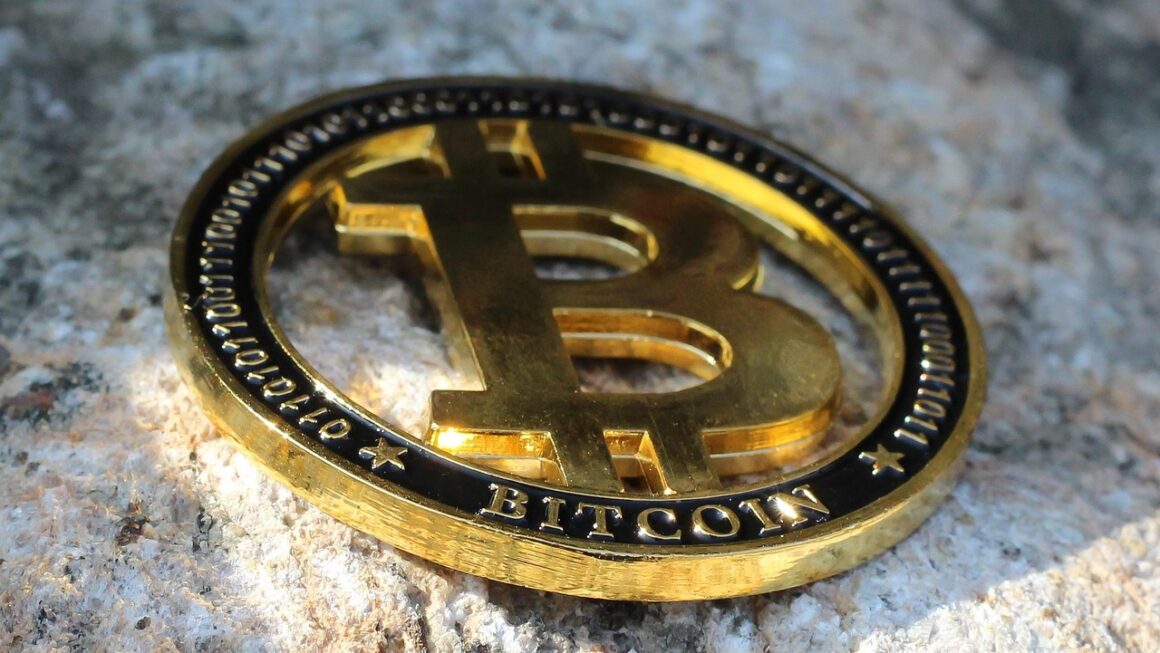Bitcoin: Unveiling the Digital Gold
Bitcoin, the pioneering cryptocurrency, has revolutionized the financial landscape since its inception in 2009. From its mysterious creator, Satoshi Nakamoto, to its volatile price swings, Bitcoin has captivated investors, technologists, and skeptics alike. This comprehensive guide will delve into the intricacies of Bitcoin, exploring its underlying technology, its potential benefits, and the risks associated with this digital asset.
What is Bitcoin?
The Foundation of Cryptocurrency
Bitcoin is a decentralized digital currency, operating without a central bank or single administrator. Transactions are verified by network nodes through cryptography and recorded in a public distributed ledger called a blockchain. This makes Bitcoin resistant to censorship and fraud.
How Bitcoin Transactions Work
When you send Bitcoin, the transaction is broadcast to the Bitcoin network. Miners then verify the transaction by solving complex cryptographic puzzles. Once verified, the transaction is added to a block on the blockchain. This process, known as mining, requires significant computing power and is rewarded with newly minted Bitcoin.
Example: Imagine Alice wants to send 1 BTC to Bob. Alice initiates the transaction from her Bitcoin wallet. This transaction is then bundled with other transactions and sent to the Bitcoin network. Miners compete to solve a cryptographic puzzle to validate this bundle (block). Once a miner solves it, the block containing Alice’s transaction is added to the blockchain, and Bob receives his 1 BTC (minus any transaction fees).
The Technology Behind Bitcoin: Blockchain
Understanding the Blockchain
The blockchain is a public, distributed, and immutable ledger. Each block contains a record of transactions, a timestamp, and a cryptographic hash of the previous block, creating a chain of blocks. This structure makes it extremely difficult to alter or tamper with the blockchain.
Benefits of Blockchain Technology
- Transparency: All transactions are publicly visible on the blockchain.
- Security: The cryptographic nature of the blockchain makes it highly secure.
- Decentralization: No single entity controls the blockchain, reducing the risk of censorship or manipulation.
- Immutability: Once a transaction is added to the blockchain, it cannot be reversed.
Actionable Takeaway: Research blockchain explorers like Blockchain.com or Blockchair to view live Bitcoin transactions and understand the blockchain’s structure.
Investing in Bitcoin: Risks and Rewards
Potential Benefits of Bitcoin Investment
- Store of Value: Some consider Bitcoin a digital gold, a hedge against inflation and economic uncertainty.
- High Growth Potential: Bitcoin has historically delivered significant returns, although with high volatility.
- Diversification: Bitcoin can diversify an investment portfolio, as its price is often uncorrelated with traditional assets.
- Decentralized and Secure: Immune to government control and shielded by robust cryptography.
Potential Risks of Bitcoin Investment
- Volatility: Bitcoin’s price can fluctuate dramatically, leading to significant losses.
- Regulatory Uncertainty: The regulatory landscape for Bitcoin is still evolving, and future regulations could negatively impact its price.
- Security Risks: Bitcoin exchanges and wallets are vulnerable to hacking and theft.
- Scalability Issues: The Bitcoin network can only process a limited number of transactions per second, leading to potential delays and high fees.
Statistics: Bitcoin’s price has seen fluctuations from a few cents in its early days to peaks of over $69,000 in 2021. This volatility highlights the importance of risk management when investing.
Example: Consider diversifying your cryptocurrency portfolio rather than putting all your funds into Bitcoin. Allocate a percentage of your investment to Bitcoin and explore other promising cryptocurrencies and blockchain projects.
Reimagining Sanity: Work-Life Harmony, Not Just Balance
How to Buy and Store Bitcoin
Choosing a Bitcoin Exchange
There are numerous Bitcoin exchanges available, each with its own fees, features, and security measures. Popular exchanges include Coinbase, Binance, and Kraken. Research each exchange thoroughly before making a decision.
Factors to consider when choosing an exchange:
- Security: Look for exchanges with strong security measures, such as two-factor authentication and cold storage of funds.
- Fees: Compare the fees charged by different exchanges for buying, selling, and withdrawing Bitcoin.
- Payment Methods: Ensure the exchange supports your preferred payment method, such as credit card, debit card, or bank transfer.
- Reputation: Read reviews and check the exchange’s track record for security breaches or customer complaints.
Bitcoin Wallets: Secure Storage Options
A Bitcoin wallet is a digital wallet used to store, send, and receive Bitcoin. There are several types of wallets available:
- Hardware Wallets: These are physical devices that store your Bitcoin offline, providing the highest level of security. Examples include Ledger and Trezor.
- Software Wallets: These are applications that you can install on your computer or smartphone. Examples include Electrum and Exodus.
- Web Wallets: These are online wallets that you can access through a web browser. While convenient, they are generally less secure than hardware or software wallets. Examples include Coinbase Wallet.
- Paper Wallets: Print out your private keys on a piece of paper. While secure when properly handled, it is prone to physical damage.
Practical Tip: Always enable two-factor authentication on your Bitcoin exchange account and use a strong, unique password. For long-term storage, consider using a hardware wallet for maximum security.
The Future of Bitcoin
Bitcoin and the Evolution of Finance
Bitcoin’s future remains uncertain, but its potential to disrupt the traditional financial system is undeniable. As adoption grows and technology advances, Bitcoin could play an increasingly important role in global commerce and finance.
Potential Use Cases for Bitcoin
- Cross-Border Payments: Bitcoin can facilitate faster and cheaper cross-border payments compared to traditional methods.
- Micropayments: Bitcoin enables small payments, which are often impractical with traditional payment systems.
- Decentralized Finance (DeFi): Bitcoin is the foundation for many DeFi applications, allowing users to lend, borrow, and trade digital assets without intermediaries.
- Remittances: Sending money across borders can be expensive. Bitcoin presents an alternative with lower fees and faster transaction times.
Data Point: Many experts predict that the adoption of Bitcoin will continue to rise, particularly in countries with unstable economies or limited access to traditional financial services.
Conclusion
Bitcoin represents a paradigm shift in the world of finance, offering a decentralized and secure alternative to traditional currencies. While investing in Bitcoin carries inherent risks due to its volatility and regulatory uncertainties, the potential rewards and transformative impact of this technology are undeniable. Understanding the fundamentals of Bitcoin, including the blockchain, wallets, and security best practices, is crucial for anyone considering participating in this evolving digital landscape. Remember to conduct thorough research, diversify your investments, and exercise caution when navigating the exciting, yet complex, world of Bitcoin.
Read our previous article: Beyond Simulation: Digital Twins Reshaping Asset Lifecycles
For more details, see Investopedia on Cryptocurrency.




